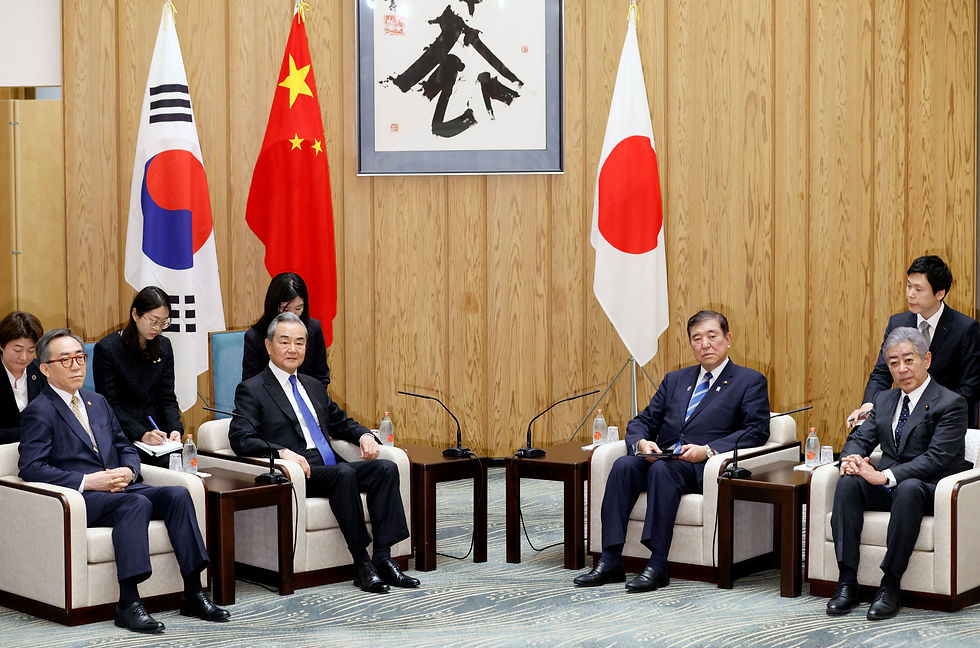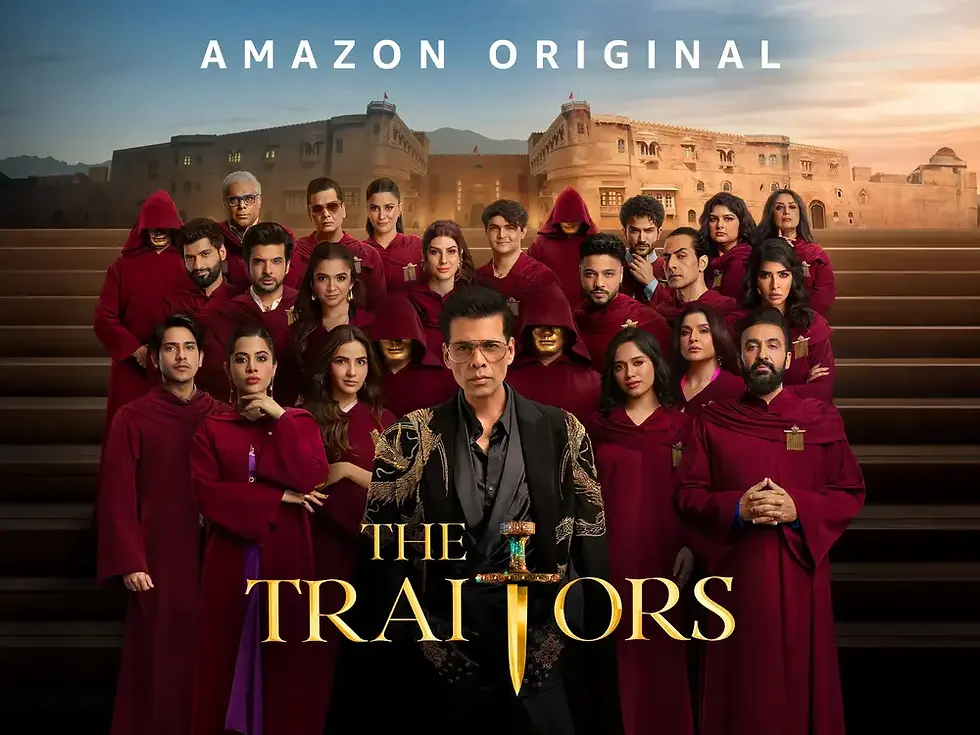Korea Ate, Left No Crumbs
- radhika-sinha

- Aug 2
- 4 min read
Let’s take a moment to accept what’s glaringly obvious: South Korea is not just a country anymore it’s a global lifestyle. From Labubu figurines hijacking Gen Z’s wallets, to Korean face masks being sold in Parisian pharmacies, to BLACKPINK performing at Coachella Korea has mastered the soft power game like no other.
But what looks like an overnight cultural chokehold is actually a decades-long strategy born out of survival. South Korea’s post-war story is nothing short of miraculous. After the Korean War (1950-53), the country was one of the poorest in the world, with GDP per capita lower than that of Ghana. It had no natural resources, limited land, and a devastated population. But what it did have was a national vision.

Through government-backed investments in heavy industries like steel, shipbuilding, and electronics (yes, Samsung and Hyundai were part of this plan), Korea clawed its way into becoming a manufacturing powerhouse by the 1980s. But in the 2000s, Seoul pivoted again this time investing not just in hardware, but cultural exports.
Enter: Hallyu - the Korean wave.
Culture Is Korea’s Greatest Export:
South Korea’s cultural dominance is not an accident. It’s a state-sponsored export strategy with global fanfare.
Let’s rewind to 2012. A man in round glasses and a tuxedo danced like he was riding an invisible horse. PSY’s “Gangnam Style” not only broke the internet, but it cracked open the world’s curiosity about Korean pop culture. And that was just the beginning.
In the last decade, K-pop has transformed from a niche fandom into a $10 billion global industry. Groups like BTS and Blackpink top Billboard charts, sell out world tours in minutes, and serve as ambassadors for brands like Louis Vuitton, Chanel, and Samsung. BTS alone is estimated to contribute over $5 billion annually to South Korea’s economy, according to the Hyundai Research Institute.

But the cultural tsunami doesn’t end with music. K-dramas like Crash Landing on You, Itaewon Class, and Extraordinary Attorney Woo dominate Netflix’s international charts. In 2020, Parasite became the first non-English film to win Best Picture at the Oscars. The following year, Squid Game became Netflix’s most-watched show of all time.
Let’s not forget the food revolution. Korean cuisine once limited to niche immigrant neighborhoods has now become mainstream. Global demand for gochujang, kimchi, and soju has skyrocketed. Korean restaurants are thriving in cities like New York, London, and Dubai, while chains like Bibigo have gone multinational.
South Korea has turned its cultural identity into an economic engine and the rest of the world is more than happy to pay.
The Skincare Coup: K-Beauty's Billion-Dollar Disruption:
Let’s talk skin. Because Korea’s obsession with beauty is now the world’s obsession.
The term “Glass Skin” which refers to a luminous, poreless, translucent complexion originated in Seoul, and it broke the internet. With 10-step routines, essence layering, and snail mucin serums (yes, snail), K-beauty reinvented the way we think about skincare.
This wasn’t just a TikTok trend it was an industry shift.
By 2024, the global Korean beauty market was valued at over $13.9 billion, projected to reach $21.8 billion by 2029(Statista). Brands like Laneige, Innisfree, Dr. Jart+, and Sulwhasoo are now globally recognized names. Sephora, Ulta, and even luxury department stores carry Korean brands as core offerings.

The innovation in Korean skincare be it sheet masks, BB creams, cushion compacts, or fermented ingredients set new benchmarks that Western beauty giants now chase. Estée Lauder, for instance, acquired Dr. Jart+ in 2019 in a billion dollar deal. Meanwhile, L’Oréal has begun R&D collaborations with Korean labs to tap into their ingredient expertise and speed-to-market capabilities.
But it’s not just about products it’s also about faces.
Luxury brands have increasingly made K-pop idols and Korean actors the global face of their campaigns. Jennie (Blackpink) for Chanel, Jimin (BTS) for Dior, NewJeans for Gucci, and actor Lee Min-ho for Fendi. These are not “Asian ambassadors” they are global brand faces. Why? Because the fan economies around these stars are not just loyal they’re ravenous. Korean stars now carry more influence than many Hollywood celebrities in driving purchasing power across Asia, the Middle East, and even Latin America.
In short: South Korea turned its skincare culture into soft power. And the world followed.
Geo-Political Muscle and Economic Influence:
South Korea might not be a military superpower, but it’s definitely a soft power heavyweight and a crucial geo-political player in Asia’s balance of power. Despite its size (the population is just 52 million), South Korea is the 10th largest economy in the world, with exports that include everything from semiconductors to K-dramas. Samsung alone makes up over 20% of Korea’s GDP, and the country is among the top three chipmakers globally.
Politically, South Korea is a key US ally in the Indo-Pacific region and plays a balancing role in tensions with China and North Korea. It’s part of multilateral groups like the OECD, G20, and the Chip 4 Alliance (with the U.S., Japan, and Taiwan) essential in shaping the future of tech infrastructure.

But what makes Korea unique is its ability to use culture as diplomacy. The Korea Foundation for International Cultural Exchange (KOFICE) works hand-in-hand with the Ministry of Culture to organize concerts, art exhibitions, fashion weeks, and academic exchanges globally. Seoul is positioning itself not just as a fashion or tech hub but as a cultural capital of the East.
Even countries like India are taking notes. Korean language enrolments have risen by 40% in the last two years (DU & JNU reports), and KOTRA (Korea Trade-Investment Promotion Agency) is expanding business delegations in ASEAN and Africa. South Korea, once known for its geopolitical vulnerability, now leverages cultural dominance as an economic and diplomatic shield.
The Country That Branded Itself Better Than Any Brand:
South Korea is proof that when a country treats culture like capital and talent like currency, it can outperform even the largest economies.
What started as a post-war rebuild has transformed into a masterclass in nation branding. K-pop isn’t just music; it’s a strategy. K-beauty isn’t just skincare; it’s economy. Korean dramas aren’t just entertainment; they’re diplomacy. And in this entire game, South Korea didn’t just play to win it made its own rules.
And honestly, we’re all playing along.



Comments